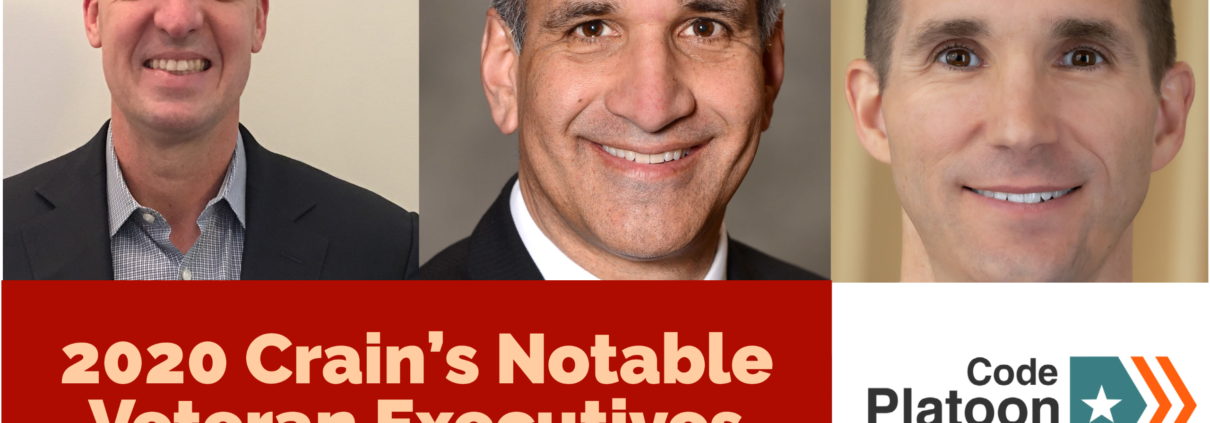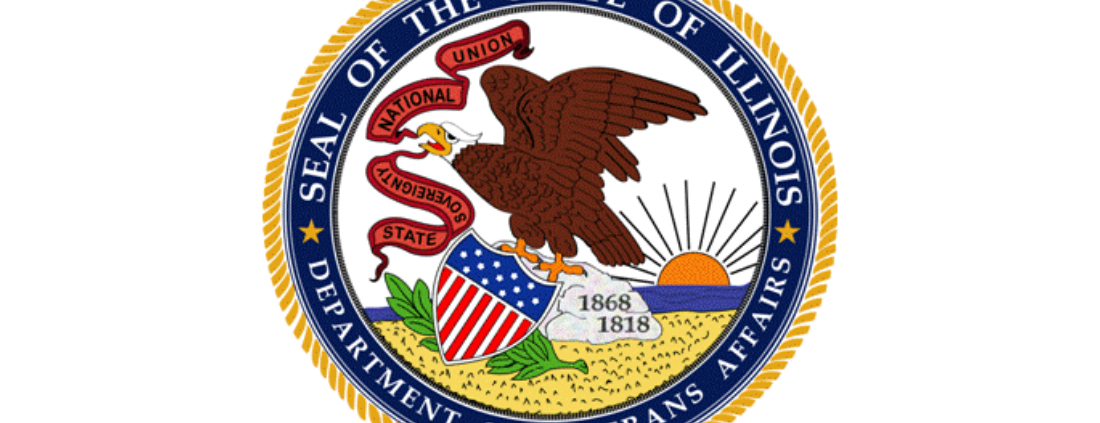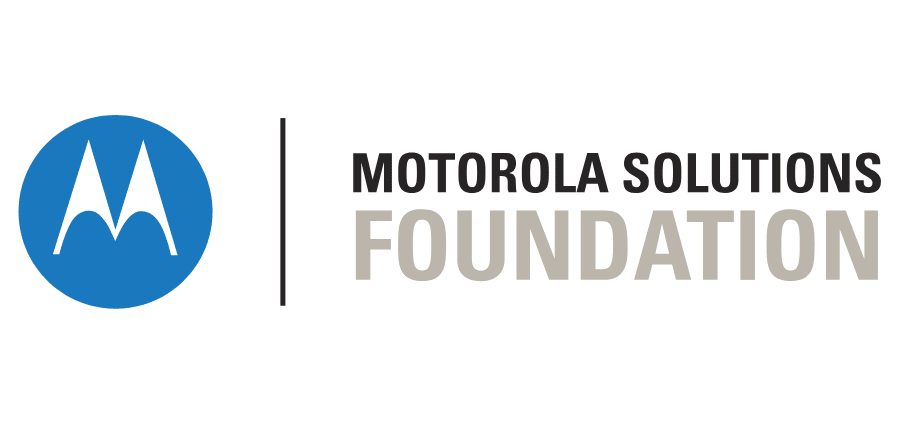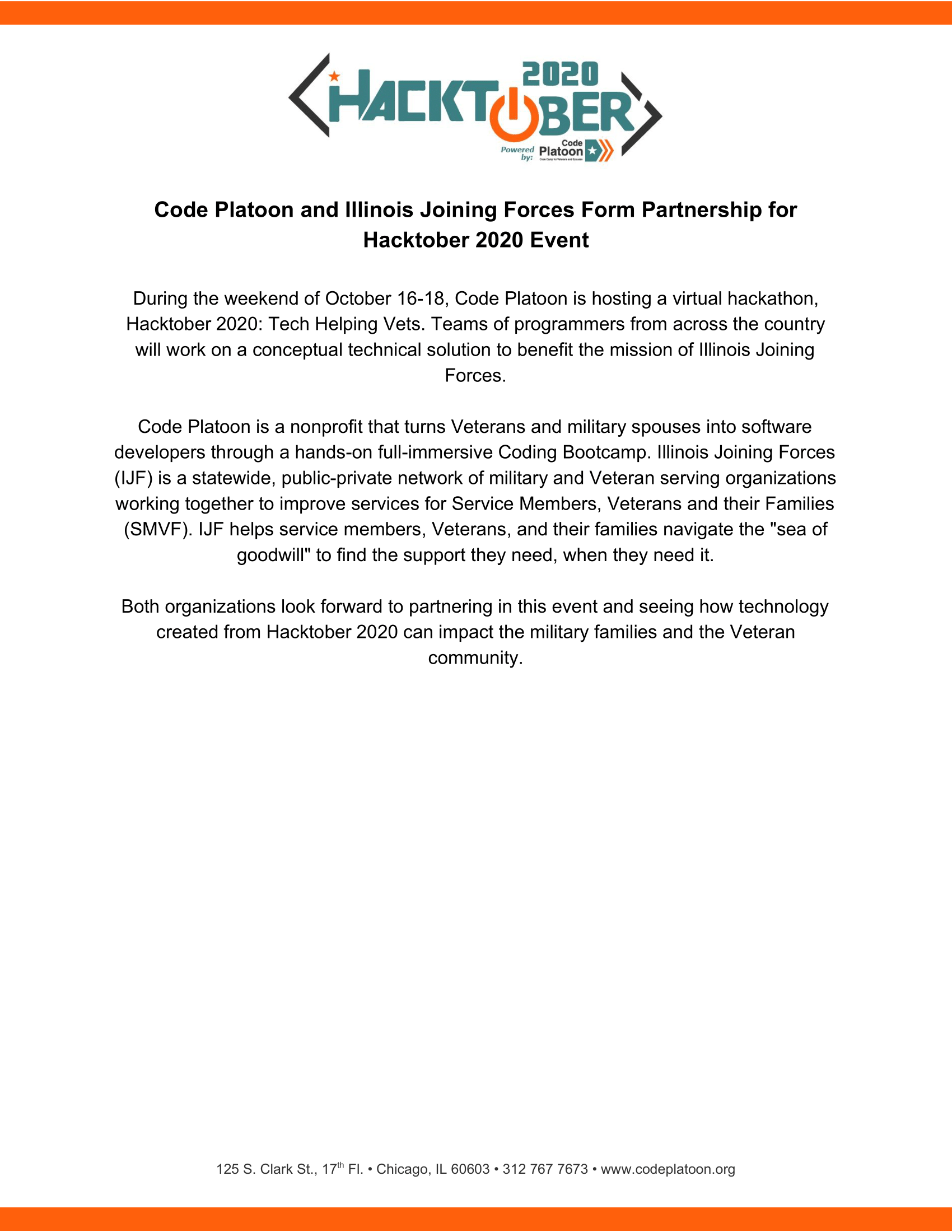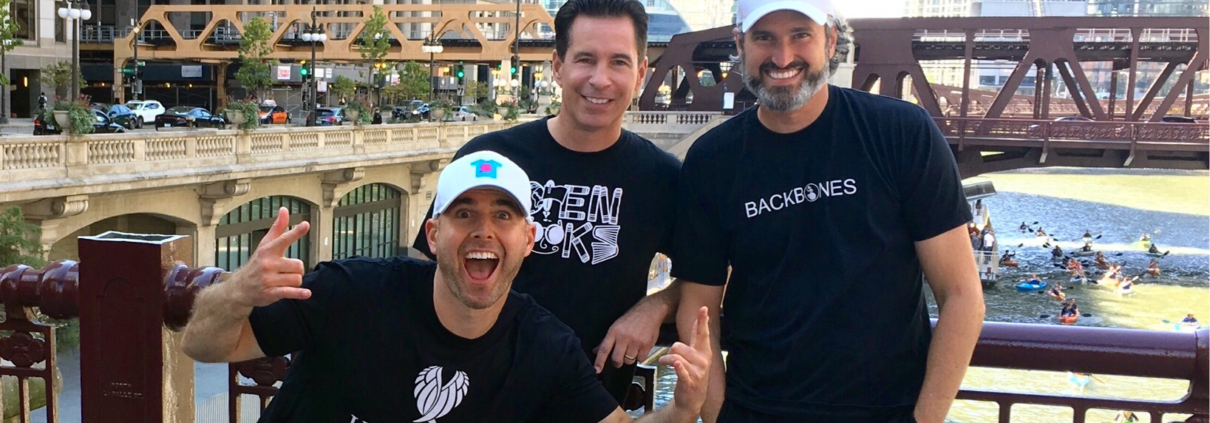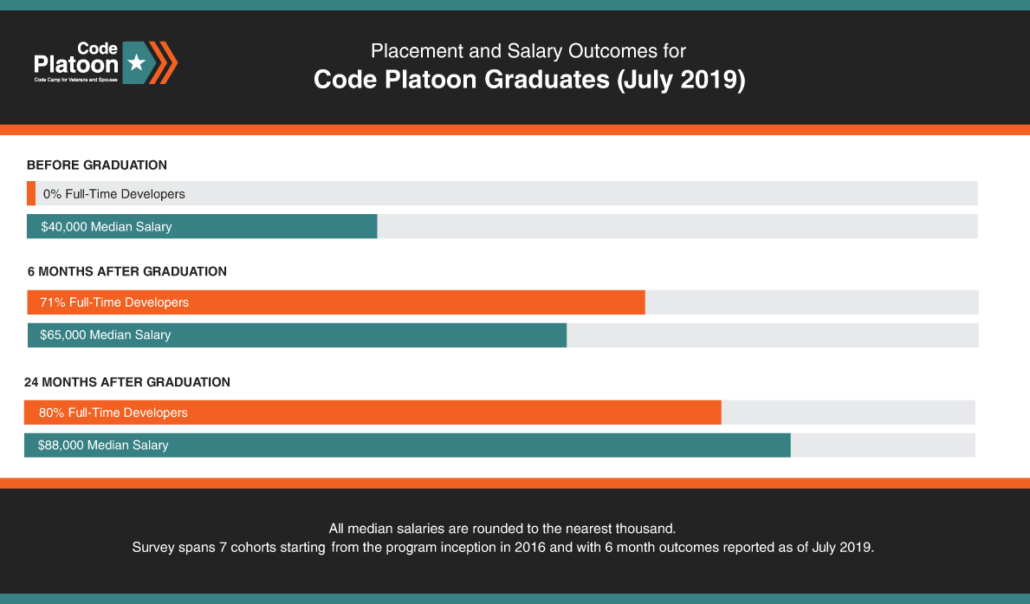Crain’s Notable Veteran Executives
Crain’s Chicago Business has recognized three members of Code Platoon’s Executive Board as Notable Veteran Executives for 2020. Edward Donovan, Iggy Khan, and Dan Reilly, who all serve on Code Platoon’s Board, were honored in the November 9th print edition of Crain’s Chicago Business, as well as online at ChicagoBusiness.com.
The three executives were recognized as part of a group of Veteran executives in the Chicago area who are currently serving in a senior level role at his or her company and have made significant contributions to advancing the issues that affect veterans within the workplace. In addition to their accomplishments within the workforce, the honorees have also made significant contributions out of the workplace, including serving as a role model for the Veteran community and holding leadership positions with Code Platoon or other civic or community organizations.
“We are beyond thrilled to see three of our Code Platoon Board members recognized as outstanding Veteran executives,” said Code Platoon’s founder and Executive Director, Rod Levy. “I truly appreciate the hard work and expertise that Edward, Iggy, and Dan bring to Code Platoon’s mission of serving Veterans and military spouses and look forward to seeing their continued success.”
In addition to their Board service, each of the three honorees have worked to provide internship and employment opportunities for Code Platoon graduates within their companies. They are committed to providing opportunities for Veterans to grow in the field of software engineering.
Edward Donovan is the Executive Vice President, General Counsel, and Secretary for TerSera Therapeutics LLC. Among Edward’s most recent accomplishments with TerSera, he led two major product acquisitions and integrations valued over $225M in 2019 and 2020. He was in charge of a cross-functional team that obtained the first and only FDA approval of a 2nd- generation antihistamine in an intravenous formulation in October 2019.
Edward has been on Code Platoon’s governing board since 2016 and currently serves as Board Chairman. Edward provides his time, leadership, and legal expertise to help promote Code Platoon’s mission of getting Veterans and military spouses into programming careers. Edward served in the U.S. Army as an officer for five years. He was stationed in Fort Stewart, Fort Brag, and had deployments to Kuwait and Egypt.
“Thank you to Crain’s for this recognition,” Edward said. “I am honored to represent Code Platoon and am grateful to have a role in helping other Veterans find careers in software engineering.”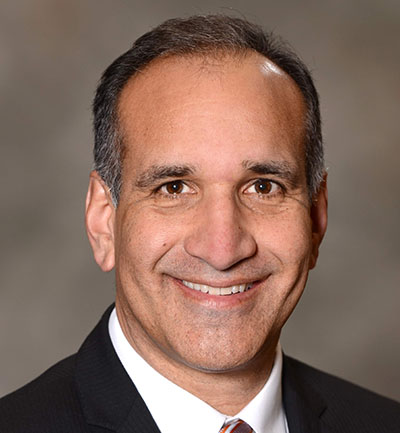
Iggy Khan is a Managing Director for Chase Merchant Services of JP Morgan Chase & Co. He has led several projects that enhance the company’s online experience and its affiliates within this role. Projects such as merging treasury and merchant processing information into a single portal and the buildout of advanced capabilities on JPMorgan Access, and commenced the migration of over 6,000 clients, including several of the largest S&P 500.
“This award from Crain’s is an incredible honor and I am thrilled to be part of Code Platoon,” said Iggy.
Iggy joined Code Platoon’s Board in 2019 and now serves as Treasurer. He is also dedicated to mentoring military Veterans, helping Servicemembers transition and acclimate into their new careers. He has been instrumental in facilitating a pipeline for Code Platoon graduates to find internships and full-time employment at JPMorgan Chase. Iggy has 20 years in military service, that time split between active and reserve status. He served in the U.S. Navy as a Naval Flight Officer and was awarded 3 Air Medals for flying 76 combat missions over Bosnia and Iraq.
 The third of Code Platoon’s honorees is Dan Reilly, the Corporate Vice President of Products & Sales Finance of Motorola Solutions. Dan is also the CFO for Motorola Solutions’ Products & Systems Integration segment within his scope of responsibilities and implemented a new project management system for delivering on a $1B+ portfolio of information technology integration projects.
The third of Code Platoon’s honorees is Dan Reilly, the Corporate Vice President of Products & Sales Finance of Motorola Solutions. Dan is also the CFO for Motorola Solutions’ Products & Systems Integration segment within his scope of responsibilities and implemented a new project management system for delivering on a $1B+ portfolio of information technology integration projects.
Beyond the expected responsibilities, Dan provides mentorship to Veterans within the company, advocates for more military prior hires, serves on Code Platoon’s Board of Directors, and is also a youth soccer coach. His military service was with the U.S. Army, where he served as a Captain. Dan began his military career after 9/11, where he deployed with the 82nd Airborne Division to Iraq and Afghanistan and with the 2nd Infantry Division in Korea.
“I am grateful to be recognized by Crain’s with this award,” said Dan. “This is a great opportunity to highlight all of the great things Code Platoon does. I’m glad to be part of it!”
Congratulations again to our Code Platoon honorees and all of the Notable Veteran Executives featured this year!
Amanda Michelle Gordon is Code Platoon’s Content Marketing Coordinator. She is a U.S. Air Force Veteran and a student of SUNY New Paltz for Journalism and Sociology. In her free time, Amanda enjoys reading, the outdoors, and turning coffee into copy. You can find Amanda on LinkedIn and Twitter.

